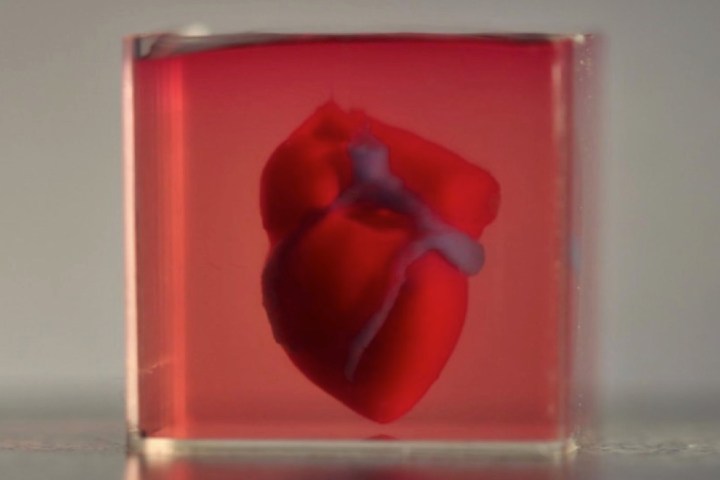
Scientists at Tel Aviv University (TAU) announced the world’s first 3D-printed small-scale heart, complete with blood vessels, ventricles, and chambers — a massive step forward for the field of 3D-printed organs, which aims to reshape the medical world.
Heart disease is the leading cause of death among both men and women in the United States. Although heart transplants represent a possible solution to this condition, there is an enormous shortage of donor hearts available. As a result, scientists are busy looking for innovative other ways of making hearts available for transplantation.
One possibility involves 3D bioprinting, a type of 3D printing that uses living cells, growth factors, and biomaterials to fabricate biomedical parts. Eventually, the dream of 3D bioprinting is to be able to create a fully functional human heart for transplant. That is still a ways off, but the TAU news is a crucial sign of progress. The heart was printed using human cells, which should make it far less likely to be rejected by a transplant patient’s body since these could be custom-created for each person.
To create their small-scale heart, the researchers took a biopsy of fatty tissue from a subject. These were then separated into cellular and a-cellular materials, and reprogrammed to become pluripotent stem cells and a personalized printing “ink.” While people have previously been able to 3D print a heart structure, this was done without cells or blood vessels.
“Our results demonstrate the potential of our approach for engineering personalized tissue and organ replacement in the future,” Professor Tal Dvir of TAU’s School of Molecular Cell Biology and Biotechnology said in a statement.
The heart created as part of the demo was approximately the size of a rabbit’s heart. From here, the researchers hope to further develop the work to create a full-sized human heart. They also plan to carry out transplants of their 3D-printed hearts in animal models. After that, it is possible that human trials could follow.
“Maybe, in 10 years, there will be organ printers in the finest hospitals around the world, and these procedures will be conducted routinely,” Dvir said.
A paper describing the research, “3D Printing of Personalized Thick and Perfusable Cardiac Patches and Hearts,” was recently published in the journal Advanced Science.


